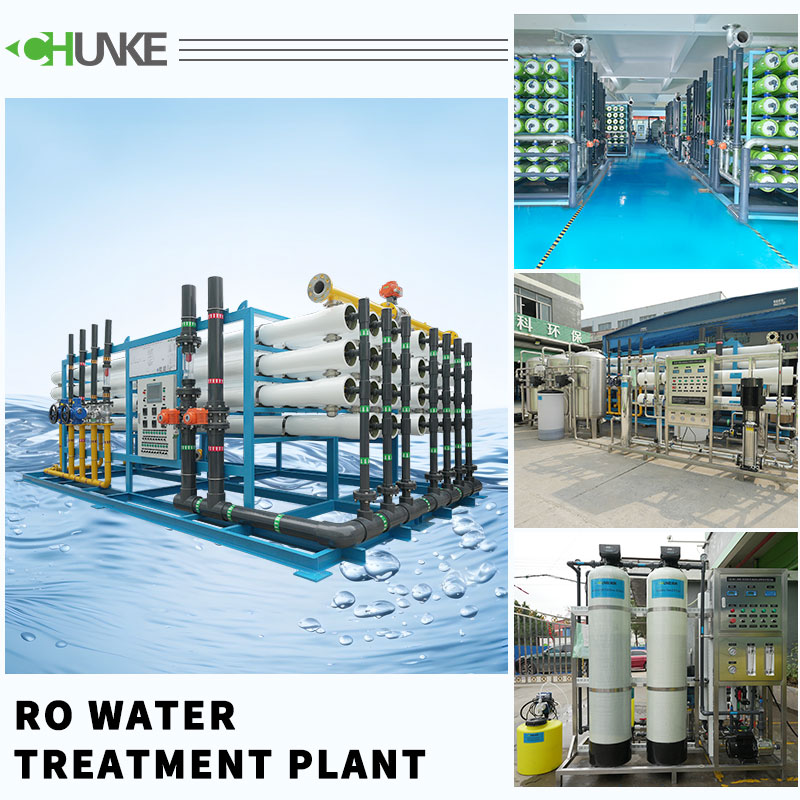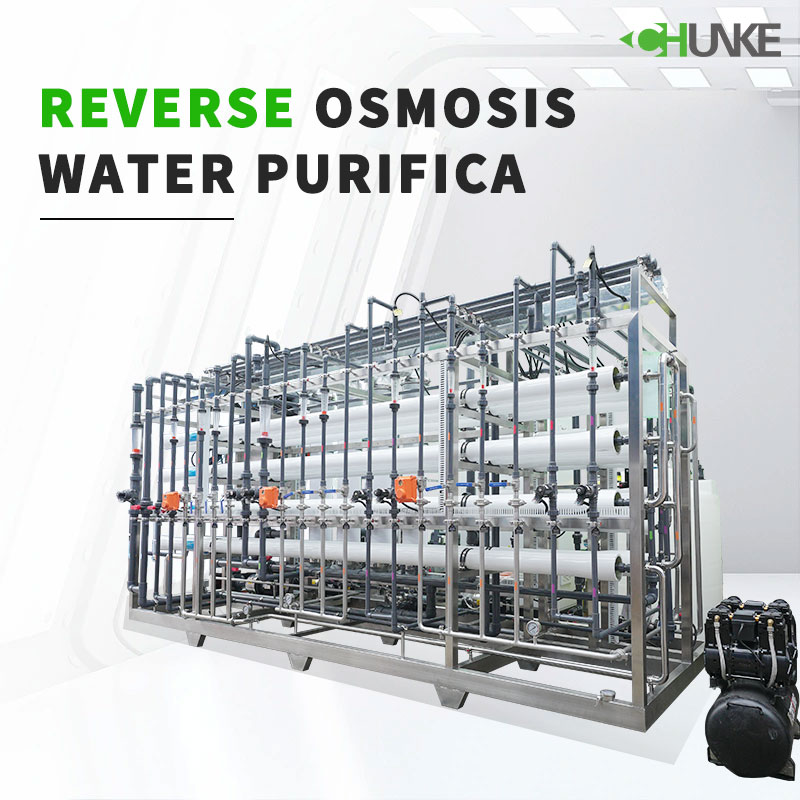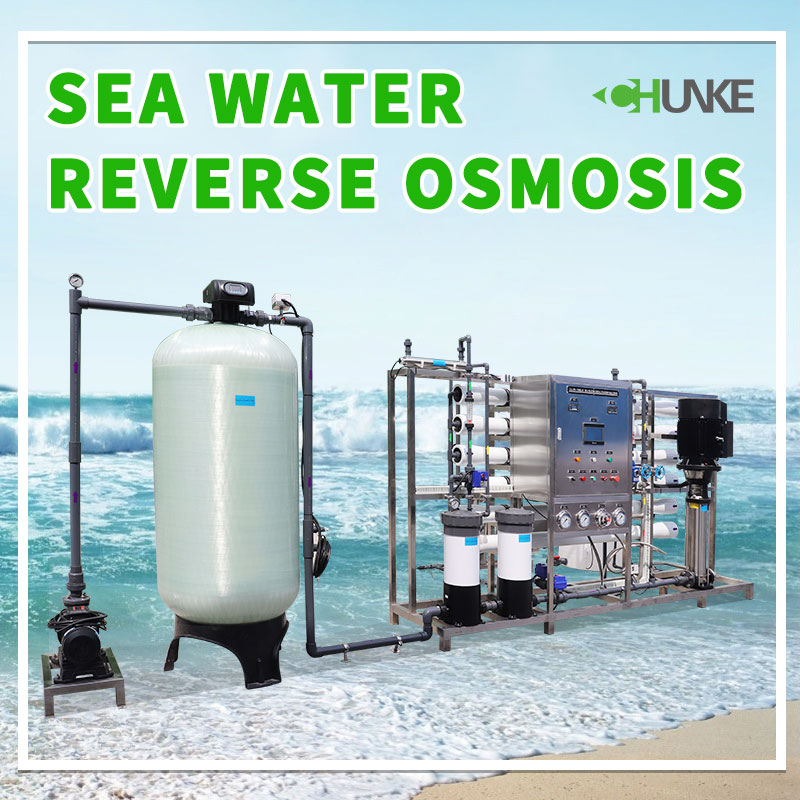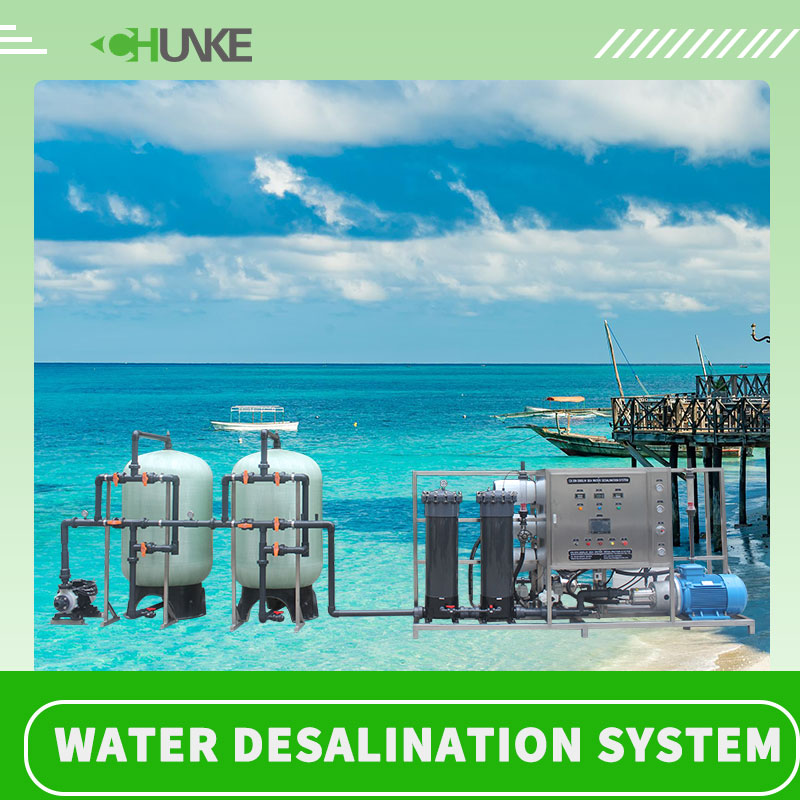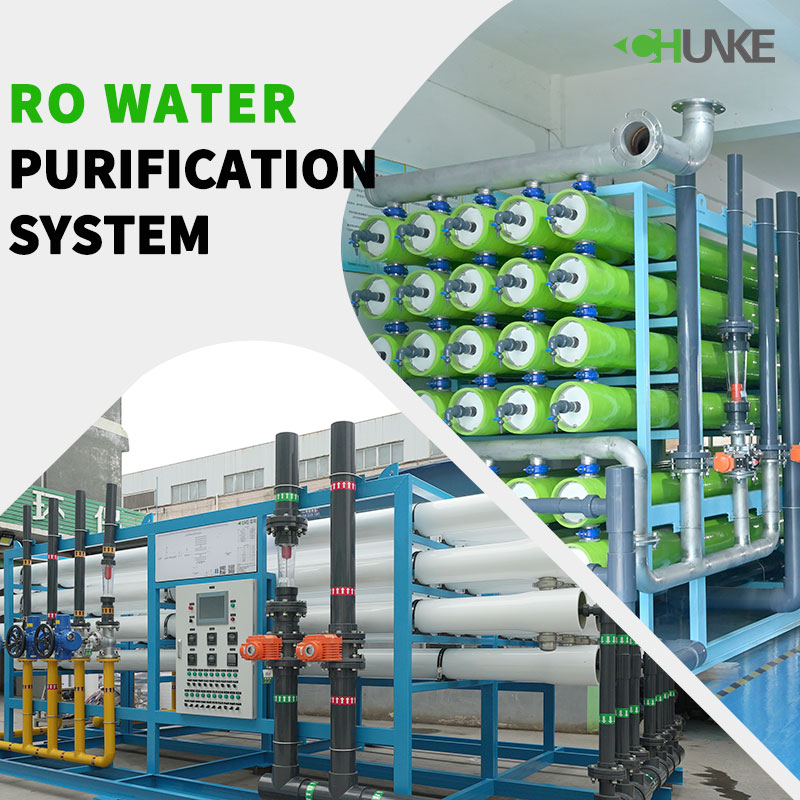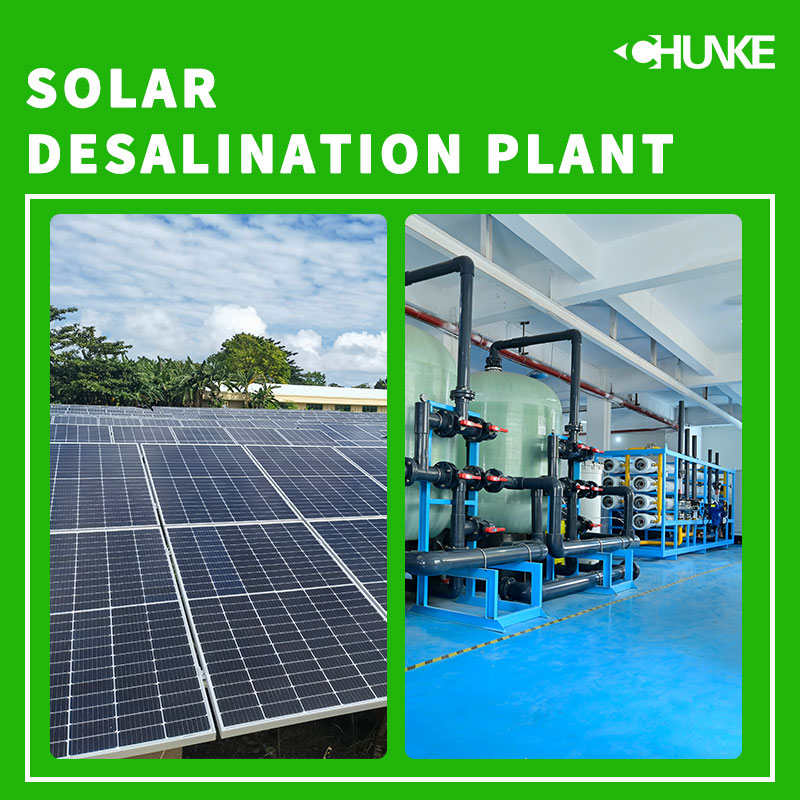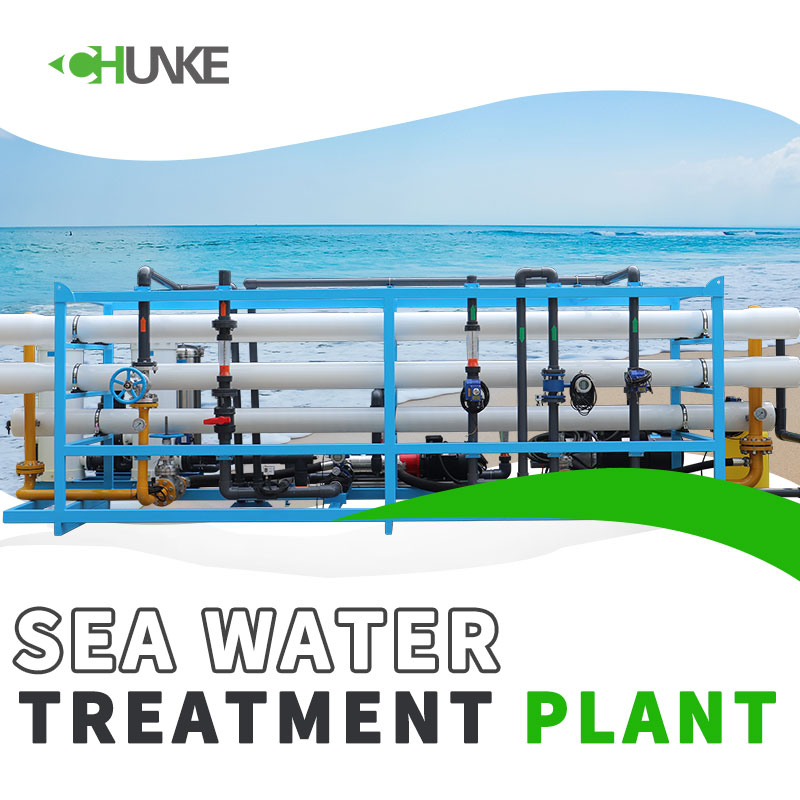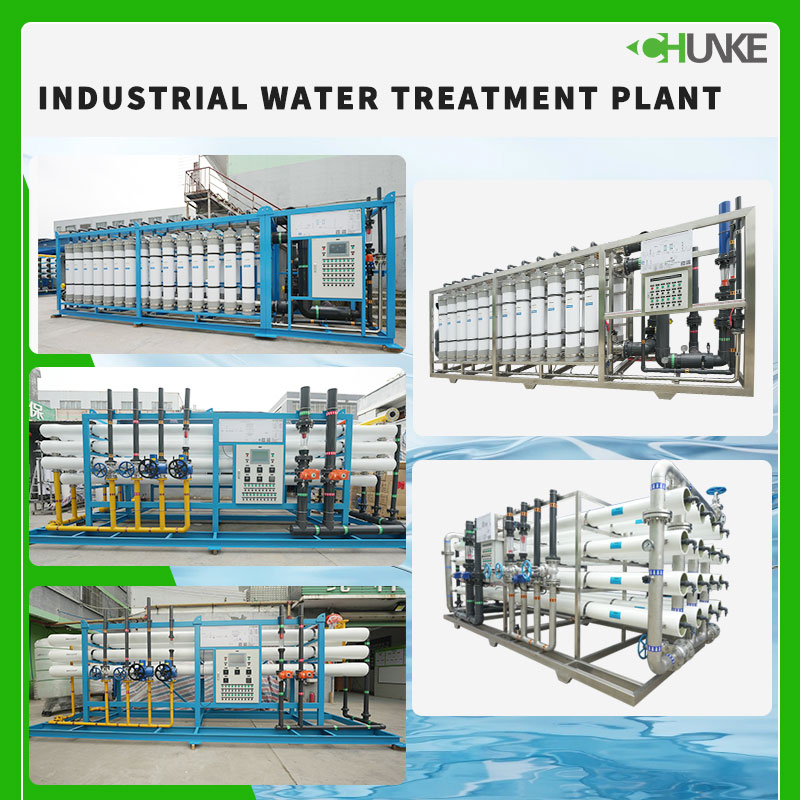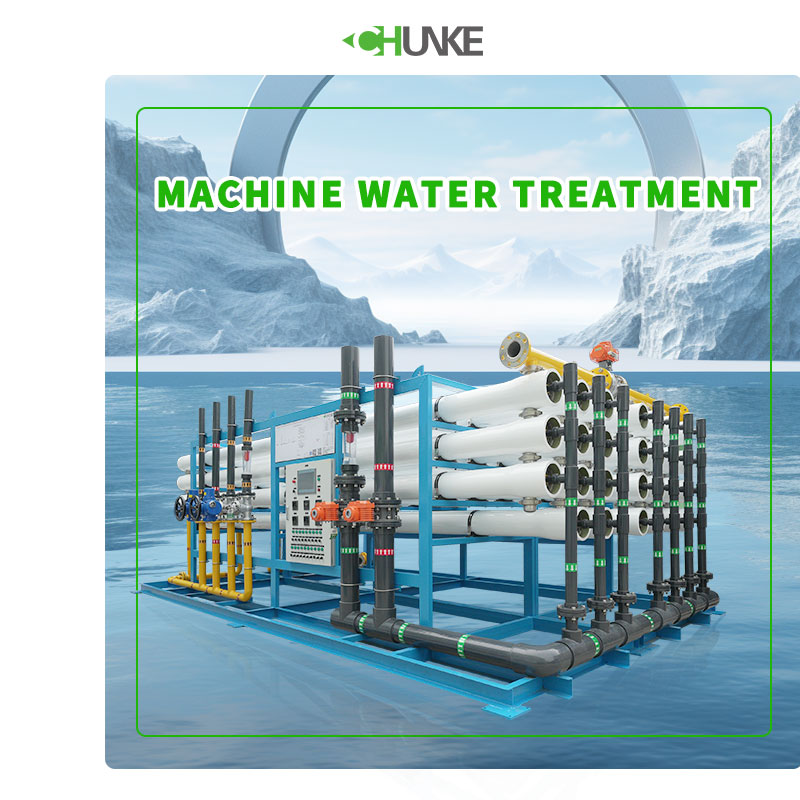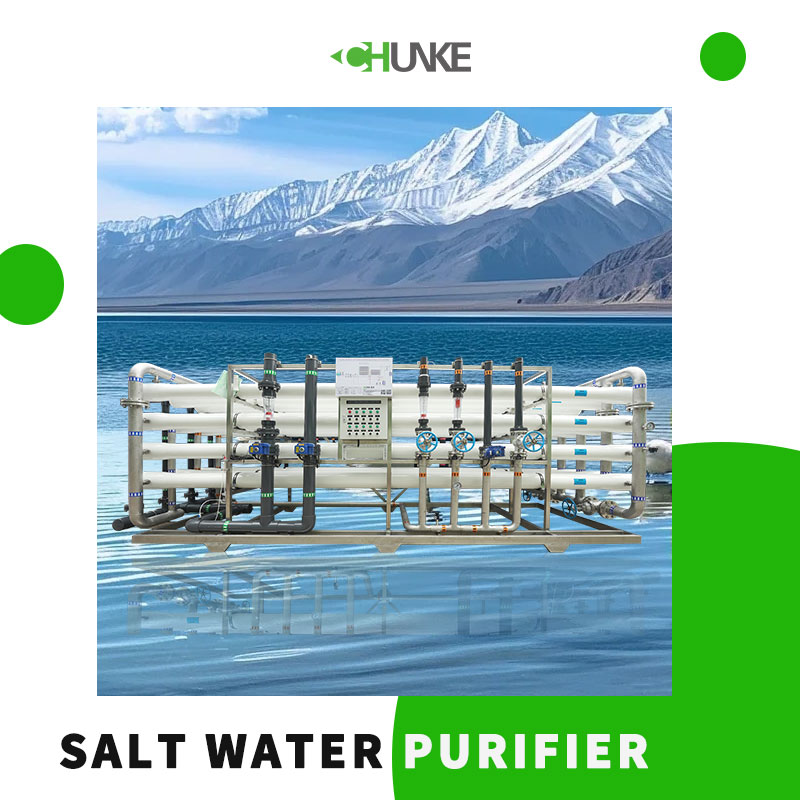-
05-08 2024
What does a water treatment plant do?
The main task of a water treatment plant is to purify raw water so that it reaches safe drinking standards. Specifically, they purify water from rivers, lakes or groundwater through a series of physical, chemical and biological treatment processes.
-
05-08 2024
What is the service life of a reverse osmosis water purification system?
The service life of a reverse osmosis water purification system is typically between 10 and 15 years. The life of the system depends on a variety of factors, including water quality, maintenance, and the quality of the system components. Frequent cleaning and replacement of filters and reverse osmosis membranes can help extend the life of your system.
-
05-07 2024
Is reverse osmosis suitable for seawater desalination?
Reverse osmosis technology is not only suitable for seawater desalination, but is one of the most advanced, effective and environmentally friendly seawater desalination technologies currently available. This method shows extremely high efficiency in the seawater desalination process and can quickly convert seawater into clean fresh water. Reverse osmosis technology uses less energy and produces significantly fewer greenhouse gas emissions than other desalination methods.
-
05-07 2024
Who invented seawater desalination technology?
The invention of desalination technology originated in the mid-20th century and was first patented by Alexander Zarchin. His desalination method is based on freezing seawater to form pure water crystals in a vacuum environment, which are then melted to create salt-free water. Chachin's invention laid the foundation for the early stages of desalination technology, but scientists and engineers produced many innovations in the field in the decades that followed.
-
05-06 2024
What is the difference between a RO water purification system and conventional filtration?
1. Differences in filtration technology: 2. Differences in filtering effects: 3. Maintenance and usage costs:
-
05-06 2024
How much does a solar desalination plant cost?
1. Cost range: According to the World Bank, the cost of solar desalination typically fluctuates within a range per cubic meter of water produced. The average cost is approximately US$0.72-1.50, depending on a variety of factors, including technology selection, energy costs, equipment and material costs, and the geographical and climatic conditions of the project location.
-
05-03 2024
What is a sea water treatment plant?
A seawater treatment plant, also known as a desalination plant, is a facility that converts seawater into fresh water through desalination technology. Its main technologies include reverse osmosis (RO), multi-stage flash evaporation (MSF) and multi-effect distillation (MED). Reverse osmosis is currently the most common desalination technology. It uses high pressure to force seawater through a semi-permeable membrane, removing salt and other impurities, and ultimately obtaining pure fresh water.
-
05-03 2024
How do industrial water treatment plants work?
The operation of industrial water treatment plants is mainly divided into two basic stages: primary stage and secondary stage. First, in the primary stage, water treatment plants focus on removing solid particles and suspended solids from the water. Next is the secondary stage, which mainly uses biological treatment technology and uses microorganisms to decompose organic matter in the wastewater.
-
05-02 2024
What are the most common water treatment methods?
The most common water treatment methods include boiling, filtering, and using water treatment equipment. These methods are widely used worldwide to ensure the quality and safety of drinking water.
-
05-02 2024
Do you have a salt water purifier?
Saltwater water purifiers do exist, and a saltwater water purifier is a water filtration system specifically designed to filter and desalinate saltwater. This system utilizes unique technology to remove dissolved salts from brine, thereby converting it into fresh water. This technology plays an important role in the field of water purification, providing new solutions for areas lacking fresh water resources.





